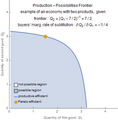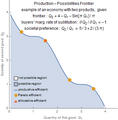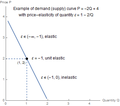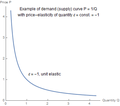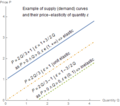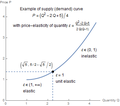User:Namth2718
| This is a Wikipedia user page. This is not an encyclopedia article or the talk page for an encyclopedia article. If you find this page on any site other than Wikipedia, you are viewing a mirror site. Be aware that the page may be outdated and that the user whom this page is about may have no personal affiliation with any site other than Wikipedia. The original page is located at http://en.wikipedia.org/wiki/User:Namth2718. |
Nam Tran | |
|---|---|
| Trần Hoàng Nam | |
 | |
| Pronunciation | ʈʂən hwaŋ nam |
| Born | September 20, 1992 |
| Other names | 陳黃南, Adam Tran |
| Education |
|
| Height | 5 ft 7 in (170 cm) |
| Website | |
Hello there! Welcome to my personal userpage. I plan to use this page as a record for my wikipedia contributions, to store and keep track of my major works/source codes, and to communicate with other wikipedia editors about changes to articles.
My strengths and interests are Mathematics, Economics/Finance, Chemistry, and Biology. I mostly edit/update articles in these area.
Unless otherwise noted, I am the sole author of all the text and media files detailed on this page. You are welcomed to use any resources here - just please cite the original source.
Feel free to stop by and drop me a message, or contact me at my LinkedIn profile. I always welcome advice and suggestions to improve my works.
Polyandry is the practice of a woman having multiple husbands. It was not rare in traditional Chinese society, especially among the wealthy elite, and it was legal in Hong Kong until as recently as 1971 (citation needed). A compendium of miscellaneous facts compiled in the Ming dynasty (1368–1644) mentioned a coastal village in present-day Zhejiang province called Shoujin’ao, where it was customary for brothers to marry the same woman. In fact, the wife preferred this arrangement for reasons of financial security. With a handkerchief hung outside the bedroom door, the husbands indicated whose turn it was to have conjugal relations.[1]
Room Keys
[edit]The hotel used to use bronze spade money as its room key card - which also appears on the embler of the Ministry of Finance (Taiwan).
The Emblem of the Ministry of Finance depicts a spade money - an early type of coinage in ancient China. The Western Han dynasty's money spade is used, imprinted with the archaic variation of the word 財.
Options Strategy - Option strategy payoff graphs
[edit]Following Black-Scholes option pricing model, the option's payoff, delta, and gamma (option greeks) can be investigated as time progress to maturity::
-
Payoff, delta, and gamma of a call option
-
Payoff, delta, and gamma of a put option
-
Payoff, delta, and gamma of a collar strategy
-
Payoff, delta, and gamma of a bull spread
-
Payoff, delta, and gamma of a bear spread
-
Payoff, delta, and gamma of a straddle strategy
-
Payoff, delta, and gamma of a butterfly strategy
Magic Square - Parker's magic square
[edit]Parker's square[2] is an attempt to create the 3x3 magic square of squares (an prized unsolved problem since Euler[3]). Parker's Square is not a magic square: it uses some numbers more than once, and the diagonal 232-372-472 sums to 4107, not 3051 as for all the other rows, columns, or diagonal. Parker's Square became a "mascot for people who give it a go, but ultimately fall short".[2] It is also a metaphor for something that is almost right, but is a little off.[2][4]
| 292 | 12 | 472 |
| 412 | 372 | 12 |
| 232 | 412 | 292 |
| Thành ngữ tiếng Hán | Thành ngữ tiếng Việt |
|---|---|
| 打草驚蛇 Đả thảo kinh xà |
Đánh rắn động cỏ Rút/Bứt dây động rừng |
| 指桑罵槐 Chỉ tang mạ hòe |
Chỉ chó mắng mèo |
| 大事化小,小事化無 Đại sự hóa tiểu, tiểu sự hóa vô |
Chuyện lớn hóa nhỏ, chuyện nhỏ hóa không |
| 行不更名坐不改姓 Hành bất canh danh, tọa bất cải tính |
Đi không đổi tên, ngồi không đổi họ |
| 借刀殺人 Tá dao sát nhân |
Mượn dao giết người |
| 滴水穿石 Tích thuỷ xuyên thạch |
Nước chảy đá mòn |
| 牛刀割雞 Ngưu đao cát kê |
Dùng dao mổ trâu giết gà Lấy búa tạ đập ruồi |
| 福無雙至,禍不單行 Phúc vô song chí, họa bất đơn hành 福不重至,禍必重來 Phúc bất trùng chí, hoạ tất trùng lai |
Họa vô đơn chí, phúc bất trùng lai 禍無單至,福不重來 |
Circular flow of income - Five sectors model
[edit]-
Circular flow diagram - five sectors model
Production-possibility frontier - Efficiency
[edit]-
Example: Production-possibilities frontier for an economy with two (groups of) products, showing Pareto efficiency
-
Example: Production-possibilities frontier for an economy with two (groups of) products, showing Pareto and allocative efficiency
Production-Possibility Frontier delineates the maximum amount/quantities of outputs (goods/services) an economy can achieve, given fixed resources (factors of production) and fixed technological progress.
- Points that lie either on or below the production possibilities frontier/curve are possible/attainable: the quantities can be produced with currently available resources and technology.
- Points that lie above the production possibilities frontier/curve are not possible/unattainable because the quantities cannot be produced using currently available resources and technology.
- Points that lie strictly below the frontier/curve are inefficient, because the economy can produce more of at least one good without sacrificing the production of any other good, with existing resources and technology.
- Points that lie on the frontier/curve are efficient.
Specifically, at all points on the frontier, the economy achieves productive efficiency: no more output of any good can be achieved from the given inputs without sacrificing output of some good.
Some productive efficient points are Pareto efficient: impossible to find any trade that will make no consumer worse off. Pareto efficiency is achieved when the marginal rate of transformation (slope of the frontier/opportunity cost of goods) is equal to all consumers' marginal rate of substitution.
Similarly, not all Paleto efficient points on the frontier are Allocative efficient. Allocative efficient is only achieved when the economy produces at quantities that match societal preference.
Elasticity - Mathematical construct
[edit]-
perfect P-elasticity of Q: Q changes while P = constant
-
perfect P-inelasticity of Q: P changes while Q = constant
-
Conventional demand curve (downwards linear slope), with its elasticity
-
Example of demand curve with constant elasticity
-
Examples of supply curves, with different elasticity
-
Examples of a non-linear supply curve with its elasticity
Elasticity indicates responsiveness. In mathematics, x-elasticity of y measures the responsiveness/fractional change of y with respect to x, i.e. how much y changes fractionally when x changes fractionally.
- x-elasticity of y:
In economics, the common elasticities are price-elasticity of quantity-demanded (elasticity of demand), price-elasticity of quantity-supplied (elasticity of supply) and price-of-a-different-good-elasticity of quantity-demanded (cross-price elasticity). They all have the same form:
- P-elasticity of Q: if continuous, or if discrete.
| elastic | Q changes more than P | |
| unit elastic | Q changes like P | |
| inelastic | Q changes less than P |
Special cases:
- perfect P-elasticity of Q, , Q changes while P = constant
- perfect P-inelasticity of Q, , P changes while Q = constant
Elasticity are commonly used because of its connection to revenue: revenue attains critical value (local max/min) when
For conventional price-elasticity of quantity-demanded (downwards linear demand curve), revenue reaches global maximum when (unit elastic). Hence, to maximize profit, firms must:
- increase price if price-elasticity of quantity-demanded is inelastic, until reaching unit elastic: ,
- decrease price if price-elasticity of quantity-demanded is elastic, until reaching unit elastic:
Testosterone - Diagnostics
[edit]-
Dimeric sex-hormone-binding-globulin with its testosterone ligands
-
Two methods for determining concentration of bio-available testosterone
The total concentration of testosterone can be directly measured using LC-MS/MS or similar analytical approach upon complete protein denaturation. However, the total amount of testosterone is not the amount available for usage by the body, since testosterone can be tightly bound and inhibited by sex-hormone-binding-globulin. Hence, bio-available testosterone’s concentration – the amount of testosterone after accounted for globulin binding – is deemed a better diagnostic component.
Although testosterone’s bio-available concentration can be directly measured, it is usually calculated indirectly from total concentration of testosterone, total concentration of albumin, and total concentration of sex-hormone-binding-globulin. Testosterone’s bio-available concentration is commonly determined using Vermeulen method [5]. Recently, testosterone’s bio-available concentration can be computed more precisely using a modified Vermeulen method [6][7], which considers the dimeric form of sex-hormone-binding-globulin [8].
Conceptually, both Vermeulen method and modified Vermeulen method employ chemical equilibrium to derive the concentration of bio-available testosterone: in circulation testosterone has two major binding partners, albumin (weakly bound) and sex-hormone-binding-globulin (strongly bound). These methods are described in detail in the accompanying figure.
(the citation was updated by wikipedia user Boghog)
Electoral System - Overview
[edit]There are two broad groups of electoral systems: Plurality voting and Preferential voting:
Plurality voting: each voter casts one vote, for only one candidate/option. Two common examples of plurality voting are First-pass-the-post (winner-take-all) used in U.S., U.K, Canada, and Two-round (run-off).Preferential voting: each voter casts one vote, for multiple candidates/options depending on preference. There are two subgroups within preferential voting: cardinal method and ordinal/ranked method. There are many examples of preferential voting: instant-runoff, Borda count, approval voting, etc.
Note: the strike-through terminologies is not matched correctly with their definitions.
- ^ "Two brothers, same wife – how China ended polyandry". South China Morning Post. October 26, 2016. Retrieved June 19, 2023.
- ^ a b c Parker, Matt (April 18, 2016). The Parker Square. Numberphile. Retrieved June 16, 2019.
- ^ Boyer, Christian. "Latest research on the "3x3 magic square of squares" problem". multimagie. Retrieved June 16, 2019.
The two corresponding prizes are still to be won!
- ^ Haran, Brady. "The Parker Square". Brady Haran Blog. Retrieved June 16, 2019.
The Parker Square is a mascot for people who give it a go but ultimately fall short.
- ^ [1], Vermeulen calculation
- ^ de Ronde W, van der Schouw YT, Pols HA, Gooren LJ, Muller M, Grobbee DE, de Jong FH (September 2006). "Calculation of bioavailable and free testosterone in men: a comparison of 5 published algorithms". Clinical Chemistry. 52 (9): 1777–84. doi:10.1373/clinchem.2005.063354. PMID 16793931.
- ^ Hasler J, Herklotz R, Luppa PB, Diver MJ, Thevis M, Metzger J, Savoca R, Jermini F, Huber AR (January 1, 2006). "Impact of recent biochemical findings on the determination of free and bioavailable testosterone: evaluation and proposal for clinical use". LaboratoriumsMedizin. 30 (6): 492–505. doi:10.1515/JLM.2006.050.
- ^ [2], Protein Data Bank ID 1D2S









